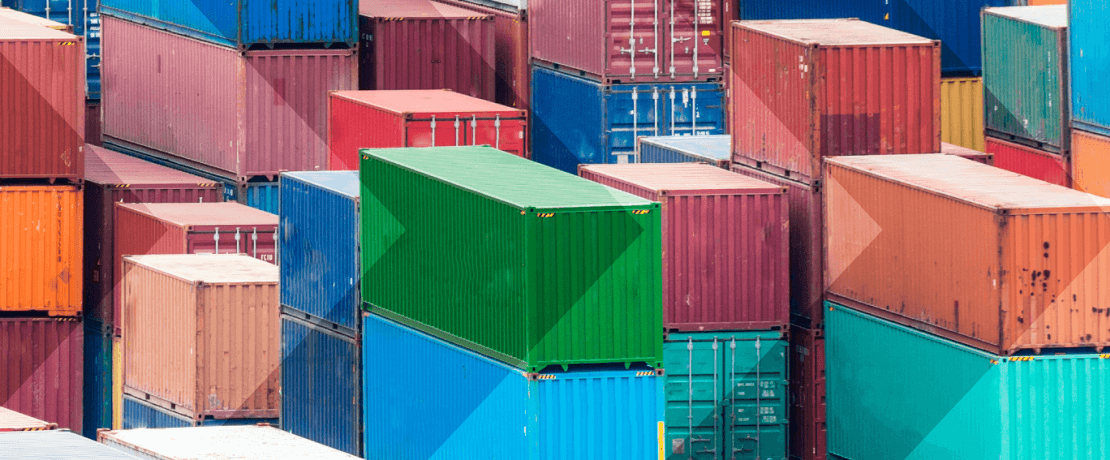Freight Forwarders vs. Freight Brokers: What You Need to Know

What are you waiting for?
Make more money starting now.
Freight brokers and freight forwarders are both part of the freight industry. Both coordinate the movement of freight for a third party, connect shippers and carriers, negotiate freight rates, and track and ensure delivery.
But there is one key difference. A freight broker coordinates the connection between shippers and carriers but does not handle freight directly. A freight forwarder actually takes possession of the freight, and often stores, packs, and ships it.
In short, a freight forwarder takes on a lot more responsibility for the goods shipped than a freight broker does. Let’s take a deeper look at each one and the differences between the two.
Freight broker vs. freight forwarder: What’s the difference?
So what can you expect from a freight broker vs. forwarder? Although they’re both part of the freight industry, freight brokers and forwarders play different roles. A freight brokerage company arranges and oversees the transport of goods between shippers and carriers. Essentially, they manage shipments but typically don’t take possession of them. They also don’t typically handle international shipping. Or if they do, it’s usually within a single area, like from a particular part of the U.S. to a region in Canada.
A freight forwarder, on the other hand, does a lot more. They often store the freight for their customers, assemble and prepare cargo for shipping, and even consolidate it with other shipments. Because of their unique licensing, freight forwarders often handle international shipments as well.
A freight forwarder vs freight broker also differs in their responsibilities and what they need to do their jobs.
First, since freight forwarding involves taking possession of cargo, they need warehouses, trucks, packing supplies, and personnel. They also need insurance and other protection due to the hands-on nature of their jobs. Freight brokers don’t need any of these things, so they rarely own warehouses, trucks, or physical freight items.
In terms of responsibility, freight brokers pay carriers, but those carriers are still responsible to the shipper for their transport items. With freight forwarders, the forwarder is responsible to the shipper, and the carrier is responsible to the forwarder.
What is a freight broker?
A freight broker’s job is to act as a kind of facilitator and negotiator. Because they connect with multiple carriers, they can often negotiate better rates for the shippers. With multiple clients and higher shipping volume, brokers have more bargaining power than an individual business with only a few regular clients.
And because brokers work for multiple shippers, they can also provide carriers with a steadier supply of loads than an individual customer could. This makes it easier for trucking companies to keep their trucks full and moving. It also helps them avoid deadhead miles.

Responsibilities of a freight broker
While their primary job is to connect shippers and carriers, freight brokerage companies do much more than act as middlemen and negotiate rates. They also monitor and track shipments, alert shippers and carriers of any delays or changes, and take responsibility for maintaining smooth and open communication between the two parties.
Freight brokers make money by taking a small commission on the cost of the transactions they oversee.
What are the benefits of using a freight broker?
- They keep tabs on changes in the industry. Brokers track regulations, freight and fuel rates, and emerging trends, and then communicate them to carriers and shippers.
- Freight brokers also negotiate better rates and fees for both shippers and carriers since they deal in larger freight volumes.
- They help optimize shipping. A brokerage can look at route changes to improve delivery accuracy and safety, and detect and reduce route inefficiencies. Why do brokers do these things? The more profitable the carriers are, the more profitable the broker is.
- Freight brokers also help you deal with claims due to lost or damaged shipments. Even when insurance covers these things, the claims process can be long, drawn-out, and frustrating. Freight brokers often handle this for you.
Freight brokers help simplify the job both carriers and shippers do. A broker’s unique position makes them valuable to both parties.
What is a freight forwarder?
Freight forwarders could just as easily be called freight consolidators. They take physical possession of items and ship freight under their own operating authority. Because freight forwarders are licensed under the Federal Motor Carrier Safety Administration (FMCSA) for interstate and foreign commerce, they can ship freight more widely under their own bills of lading than a freight broker can.
They also package shipments, often consolidating them with others going to the same area. Their volume and power help them negotiate better rates for freight as well.
Responsibilities of a freight forwarder
Since it involves physically taking possession of the freight, freight forwarding is a much more hands-on role than freight brokering. Warehousing freight means that freight forwarders are also responsible for insurance. And even though they don’t actually move the cargo, forwarders arrange and coordinate transportation in a much more physical way than a freight broker does.

What are the benefits of using a freight forwarder?
- They consolidate or break up goods in storage. They also package and route cargo in unique ways to save on shipping costs and ensure the goods are delivered safely and on time.
- They act as a go-between for clients and transportation services to ensure that the product gets to the customer.
- Freight forwarders handle customs and international import and export issues.
- For domestic or international shipping with a higher damage potential, forwarders can either teach customers how to package their products or do it for them.
- They facilitate proper labeling to ensure that all packages are delivered when and where they need to be. Such labeling for international shipping includes:
- The exact items within the shipping container
- Any hazardous items
- Country of origin
- Actual weight in pounds or kilograms
- Port of entry details
- Any additional details needed in the language of the destination country
- Freight forwarders also prepare documentation like the bill of lading and commercial invoice. Internationally, they prepare the certificate of origin and an inspection certificate.
These benefits make forwarding desirable for many businesses.
Legal liabilities for freight brokers and freight forwarders
The responsibility each party takes for shipment also impacts their legal responsibility for the goods they handle. Freight brokers facilitate transport. They never take possession of, and therefore are never legally responsible for, the actual freight.
Once the freight forwarder takes possession of cargo, they are physically responsible for the storage, shipment, and delivery of that freight. They also assume legal liability for the load and its condition after receipt. As a result, a freight forwarder has much stricter insurance and government licensing requirements.
What carriers need to consider
No matter who you’re hauling freight for, inspect your shipment before it’s loaded onto your truck. Check for damage, shortages, and anything else you may be held responsible for. This is especially true if you’re hauling for a freight forwarder. When you deal with a freight forwarder, many more hands have handled the freight by the time it is loaded. Inspections can take a bit of time at pickup, so be sure to build that time into your schedule.
Also keep in mind that when you take freight possession, the rate sheets you sign are legally binding. Read them carefully. Make sure they match the rates you were promised and that the instructions are clear. Once you’ve signed the sheets, you must honor those terms.
Another thing to consider is that neither brokers nor forwarders are required to pay you until the customer pays them. You might get paid much later than anticipated unless you choose to factor your freight invoices.
Use the Truckstop Load Board to find loads
Whatever type of loads you’re looking for, whether you prefer working with brokers or freight forwarders, using load boards is an excellent way to make sure you always know where your next load is coming from. They can also help you avoid deadhead time and ensure that your trucking business runs as efficiently and profitably as possible. Check out the Truckstop Load Board today or sign up to get started. We are here to help you make your trucking business a success.
Topics:
Get helpful content delivered to your inbox.
Sign up today.
Find high-quality loads fast, get higher rates on every haul, and access tools that make your job easier at every turn.






